Choosing the Best Barcode Label Printer & Software
For industrial enterprises and retail facilities alike, barcodes are an indispensable part of daily operations. Although simple in design, barcodes enable businesses to maintain accurate records and sell merchandise without error. Essential processes like product transportation, inventory control, and customer sales all rely on barcodes to communicate important product information. Without these codes, merchandise can easily become lost along the supply chain costing businesses time, money, and extra work.
To apply barcodes, companies have a multitude of hardware and software options to choose from. For example, continuous inkjet (CIJ) printers, thermal inkjet (TIJ) printers, high-resolution case coders, and thermal transfer overprinters (TTO) are all able to place barcodes either directly onto products or their packaging. Determining which barcode label printer type is best depends on the specific needs of the organization. Software options are similarly plentiful.
With all of these choices available, finding a solution can be a daunting task. Utilize these best practices if you need a bit of guidance to aid in your barcode label printer/software search.
Three Questions to Consider When Choosing the Best Barcode Label Printer
The industrial printing sector is filled with diverse machines and model types. Each one possesses different mechanical properties, including max speed, substrate specialization, print height, and DPI resolution. To narrow the field of printer options, consider the following:
1. What Materials Are You Printing On?
Substrate selection is a crucial consideration when searching for a printer. All materials possess unique properties that influence ink adherence. For example, porous substrates (e.g. cardboard or paper) allow ink to sink below the surface, whereas nonporous substrates (e.g. plastic or metal) possess ink-resistant surfaces. The only way to guarantee a successful coding is to pair the substrate with an appropriate ink formulate.
However, not all printers are compatible with the same ink. While CIJ printers have access to formulas that are suitable for both porous and non-porous applications, some TIJ printers and high-resolution case coders are only compatible with porous-appropriate inks. Fortunately, you can avoid potential printing problems by examining what formulas are compatible with each printer model.
2. What Is Your Production Setup?
Just as substrates vary from business to business, so do production setups. Larger operations often require the speed and convenience of a high-speed production line, while smaller operations may find a conveyor belt excessive for their needs.
Printer companies accommodate this diversity by offering printer models of different sizes and mobility:
-
Continuous inkjet printers, like the DuraCode Touchscreen, are large, stationary machines that are designed to sit on production lines and code products moving at 1000+ feet per minute.
-
Thermal inkjet printers, like the Anser U2 Pro-S, are highly affordable, compact, and lightweight making them a good choice for applications that require a degree of mobility.
-
High-resolution case coders, like the Precision 72, are of similar size to CIJ printers and are also used in automated production lines. Case coders specialize in creating larger barcodes, text, and images on porous substrates and are often used to code secondary and tertiary packaging as a result.
3. Will the Printer Be Needed for Other Applications?
Some printers are more versatile than others. For instance, although case coders excel at marking porous substrates, their limited ink access prevents them from printing on non-porous materials. If you need a multi-purpose machine, it’s important to have a full grasp on all possible applications to ensure that you are not limiting yourself by selecting the wrong printer.
Tips to Keep in Mind When Choosing the Best Barcode Label Printer Software
Even the best possible printer model won’t work well without the right software. By using high-quality software, you can integrate your printer into a larger IT system. Through integration, you can access the data necessary to quickly generate barcodes for either your product lines or shipping labels.
When shopping for barcode label software, search for the following characteristics:
1. Database Connectivity/ERP Compatibility
Without integration, barcode labels must be created by hand from stock templates. Not only is this time-consuming, but the chance of human error increases. By integrating a printer with a larger ERP system, you can make your labeling system more efficient and accurate.
With ERP compatibility, label printing software allows users to directly extract information from the master data system without the use of custom coding. The reliability of this information minimizes the risk of errors helping users avoid costly printing mistakes.
2. Ability to Create GS1-128 Barcodes
Global Standard One (GS1) is an international organization that sets standards for serialized commercial numbering schemes. In 1989, the group created GS1-128, an application standard related to high-density linear barcodes. To date, this system is the most widely used barcode standard in the world. Consequently, it’s incredibly important to use barcode software that can create labels that follow GS1-128 guidelines.
Need More Guidance? InkJet, Inc. Is Here to Help
Barcodes are key to participating in modern commerce. With the right barcode label printer and software, you can apply these markings on all of your products in a reliable, efficient fashion. However, with the wide range of hardware and software options on the coding market, finding the best tools can be difficult.
To help alleviate this stress, the knowledgeable team at InkJet, Inc. is happy to provide expert guidance. Our team has been designing industrial printing solutions for over three decades, and we understand the unique challenges facing different manufacturing sectors.
With a product portfolio filled with different printers, ink types, software, and more, we can help you find the best solutions for your needs. Call today to get started!
For more information on barcode label printers and software, contact InkJet, Inc. online or by phone at 1(800) 280-3245.



